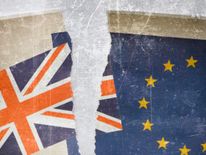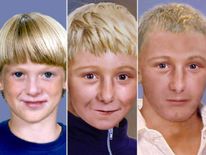I do. More than 25 years since the world wide web and we're still just splashing around in the shallows.
My unfair gripe is that the biggest information revolution in history has so far confined itself, mostly, to information.
Despite varied and delightful services, like Tinder, they're all pretty much the same: look at something and send back your thoughts on that something.
To do a bit more, the internet needs to break through the glass screen and into the world; from information to action.
The first necessary and boring step in this is the internet of things, a term first coined in 1995 and only just getting there now, with small computers being embedded into everyday objects, like washing machines.
That's leading to new, emerging user interfaces, including voice control.
The next stage is much more radical, though: a world in which we transmit touch as easily as we do information.
Advances in robotics and in networks will allow us to manipulate objects in real time across continents.
Mischa Dohler, professor of wireless communications at Kings College London, calls it "the democratisation of labour".
A Vauxhall engineer will service a car in Asia from the UK; a Great Ormond Street Hospital surgeon will be able to operate on children in Aleppo.
You could be taught woodwork or painting or piano at home by an expert teacher an ocean away.
"The idea is to transmit labour digitally from any point in the world to any other point in the world," Dohler says.
"We could, in a sense, democratise labour the same way as knowledge has been democratised with the internet."
The internet may have collapsed borders, but every so often you still need to get on a plane. Not anymore.
Some of this is here already. The first remote surgery happened in 2001, when French surgeon Dr Jacques Marescaux, in a New York theatre, operated on a patient 6,230km away in Strasbourg.
Now the da Vinci surgical robot offers a commercial version of that system.
Teledildonics, or, if you prefer, cyberdildonics, let people operate sex toys for their partner from afar: just connect via wifi or bluetooth.
Telepresence robots - basically, a head-high screen stuck on a pole stuck on a hoverboard - let people "attend" events digitally, trundling around conference room floors; it's how Edward Snowden gets about the world despite being confined to Moscow. Imagine telepresence in a fully embodied android and you could combine all three.
But these are all haphazard. The da Vinci robot is an expensive and proprietary system, for instance.
Dohler is intent on building a set standardised plumbing for the tactile internet - the same features that allowed the internet to be open and adopted by anyone with a connection.
Some of that is technical, but important: coming up with open codecs so that data can be compressed and decompressed and swapped between very different robots efficiently; establishing an ultrafast, omnipresent 5G network so that every robot enjoys zero delay (Marescaux's pioneering surgery needed France Telecom to provide a dedicated fibre optic line to minimise the lag time between his movements and the robot mimicking them).
When can we expect the tactile internet?
Dohler says sometime around 2025, which seems slightly optimistic to me, given that we haven't even agreed what 5G will look like yet.
Still, being quite literally out of touch will, in due course, be impossible.







